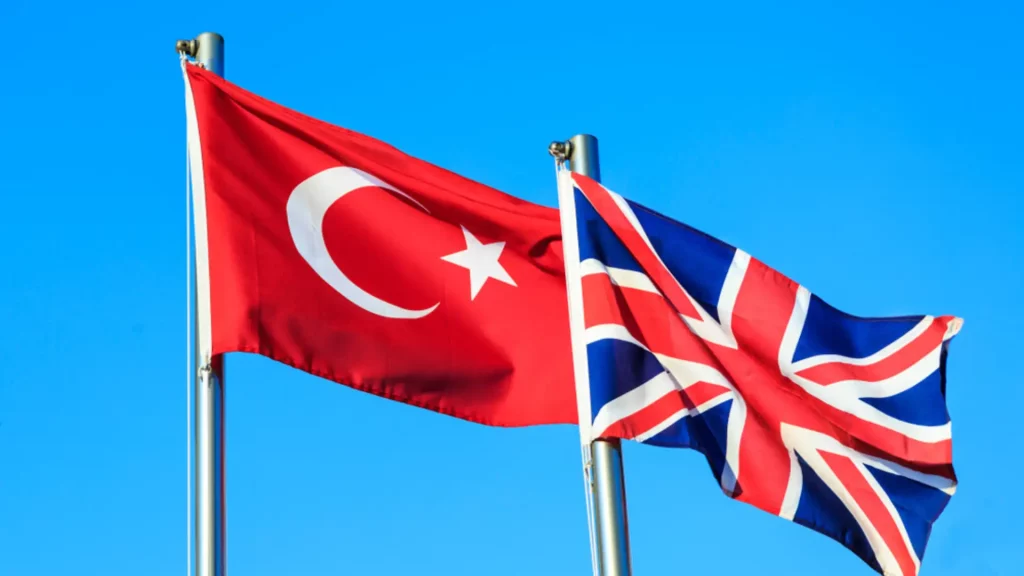The previous FTA with Turkey was signed after Brexit with a limited area of influence
Turkey and Britain announced on July 18 that they had begun diplomatic talks for a new free trade deal or FTA. Both the countries’ authorities met in the Turkish capital Ankara to evaluate the ongoing free trade agreement and bargain for a revised deal.
Britain left the European Union in the popular event of Brexit at the start of 2020. Since then, the United Kingdom has been trying to compensate for the lost economic activity with its largest trading partner. After the costly divorce, it is nourishing its relationship and deepening its ties with middle powers like India, Turkey, and Singapore.
Dominic Johnson, the Investment Minister of the United Kingdom, said earlier that the current ongoing agreement since December 2020 has a wide range of almost all the products. However, a reevaluated agreement can provide exposure to untouched sectors like the digital and services industry. This exposure will benefit both economies by providing value.
The reelected Turkish President, Recep Tayyip Erdogan, is a de facto ruler of a nation with middle power, punching above the weight. But from an economic perspective, foreign inflows are required for trade and growth. Erdogan is also building newer trade relations with the Gulf to seek investments and also enhancing its ties with the UK.
Soner Cagaptay, a Beyer family fellow and a director of the Turkish research program at The Washington Institute, said this announcement is a pivotal step for post-Brexit Britain. The separation from the European Union has granted it the freedom to go out and gather global strength in terms of securing allies and signing economic deals to increase its overall strength.
Old Testament
The previous FTA with Turkey was signed after Brexit with a limited area of influence. Back then, it was formulated as a kind gesture to the Turkey-EU customs union deal. This stops it from being implied on other items besides manufactured goods and agricultural produce.
The UK and Turkish economies rely on the services sector for 80% and 75%, respectively, for their economy, which was surprisingly excluded from the deal. After the United States, the United Kingdom holds the second position globally for services exporters. A renewed deal between both nations would be positive for consumer goods.
In 2022 alone, the total trade value between the two nations crossed 23.5 billion pounds ($30.23 billion); this was a growth of 30% from last year. This number could significantly rise, considering that Turkey is the 18th largest trading partner of the UK.
In the new deal, services will have substantial representation, with sectors like finance, telecoms, energy, and transportation as the primary entrants and modern digital services to a large extent. Appropriate scrutiny of sectors needs to be done to scrap out sectors of offensive nature to the other party. Digital industries and finance would be of commercial interest for the UK, whereas tourism, contracting services, construction, and transport would be on Turkey’s side, said Sinan Ulgen, a senior fellow at Carnegie Europe in Brussels.
Ulgen highlighted that it is going to be tough and more complicated bargaining of free-trade for services than it is for free-trade of products. This is because the internal hindrance of any kind of services sector needs to be assessed due to different regulatory frameworks. This assessment will provide a better understanding of which frameworks should be substituted. A new deal could stay in the negotiation pipeline for almost three to four years but will turn out to be fruitful for both economies at the completion.
Ilke Toygur, a senior associate with the Centre for Strategic and International Studies Europe, Russia, and Eurasia program, said that Turkey had been demanding a renegotiation for the FTA for the last couple of years. This time the UK is independent of craving and striking out a deal with its ally. This is a strategic geopolitical move as well after Turkey’s approval for Sweden to become a part of the North Atlantic Treaty Organisation (NATO). It was surprising to accept Erdogan’s sudden change of stance towards Sweden’s application to join the alliance in early July.
The Turkish FTA deals with the EU and UK were written for the 20th century. But the current economies need to rewrite it as a 21st-century deal by painstakingly liberalising services, digital and data sectors, added Toygur.
Future expectations
FTA negotiations are a tedious and time-consuming task. Hence it is going to take years to design a deal. The interests of both parties need to be satisfied for a mutual agreement. Authorities keep a stringent eye on all of their national interests and extract the best out of the deal. An issue is that Turkey has an unstable law structure which makes joint venture enterprises a headache and trade deals slightly complex.
